Italy has a certain experience in changes of government, having seen 68 different governments in 73 years. However, even by Italian standards, what happened this summer to the first populist government in an advanced economy is unusual, to say the least. It is also instructive for other countries, showing the key roles of parliaments and the framework of the eurozone in counterbalancing authoritarian temptations.
At the beginning of August, Matteo Salvini — head of the far-right party the League, deputy prime minister, and interior minister — wanted to leverage his high polling numbers and break with his coalition partner, the Five Star Movement. Salvini called for new elections, asking Italians to hand over “full powers” to him.
His main motivation was to break free from European fiscal constraints — maybe even exit the euro — and give fiscal stimulus to the over-indebted Italian economy after 25 years of austerity and low growth. On August 20, during a speech in the Senate on the government crisis, Salvini announced his plan for a new budget law amounting to 50 billion euros in lower taxes and higher investments. In interviews, he also said that the European fiscal constraints would have to be modified to allow for that stimulus,” adding: “Brussels will have to accept it, like it or not.” Salvini also wanted Italy to move closer to Russia and apparently to a Putin-like authoritarian political style, distancing Italy from its traditional European and Atlantic allies.
What happened instead was that the other larger political parties — the Democratic Party (PD) and the Five Star Movement — papered over their acrimonious rivalry and joined forces, generating a new majority in the Italian parliament. Prime Minister Giuseppe Conte, an independent aligned with the Five Star Movement, received a mandate to form his second government — with a larger majority, given that the PD won more seats in last year’s election than the League — which was inaugurated on September 5.
The obvious lesson is that in a democracy, the parliament counts and it becomes vital when a populist leader wants to take “full powers.” This would sound banal if the political drama in Rome hadn’t happened within hours of British Prime Minister Boris Johnson suspending the U.K. Parliament so that he could proceed to a “hard Brexit” without democratic impediments. The same could be said of other strong leaders, even Donald Trump, governing often by executive orders, blaming the representative chambers, and attempting to exert influence on institutions, like the Supreme Court, that should counterbalance their executive powers.
I suspect that Italy’s members of parliament have chosen to resist new elections also to save their seats, a normal instinct in any democratic institution. In fact, given its experience of dancing on the brink of volcanoes, Italy has an ingrained safety valve that prevents it from going too far, for better and for worse. The key is Italy’s awareness of its own vulnerability. Fiscal fragility, a unique combination of high-wealth/low-income households, and exposure to instability across the Mediterranean (with massive migration flows and a lack of support from Europe), have been keeping Italy walking on thin ice for decades.
For all its anti-European rhetoric, even the last government caved in twice when confronted with the European fiscal rules. I called the Conte’s first government a “techno-pop” executive because, as so many times in the past, a number of technocrats — such as Finance Minister Giovanni Tria and Foreign Minister Enzo Moavero Milanesi — were added to the populist ministers in order to preserve stability in Italy’s economy and foreign policy, as requested by President of the Republic Sergio Mattarella. Even Conte, who headed the worst Italian government in ages — inexperienced and unaware of European rules — has learned his mandate and now supports Italy’s fiscal stability, moving away from his awkward initial anti-EU rhetoric. Eventually, both Conte and the Five Star Movement were decisive in securing the election of Ursula von der Leyen as head of the European Commission. Italy’s homecoming from the populist hallucination occurred in that precise moment.
A number of factors played a role in Salvini’s demise. Most Italians remain generally pro-European. The Vatican frequently spoke out against Salvini’s hardline anti-migration policies. Ultimately, the League’s leader found himself with no friends: not in Washington, where he gave insufficient guarantees of playing on the Western side (President Trump supported Conte over Salvini at the most critical juncture, although initially misspelling his name); surely not in Brussels, where Angela Merkel has opened a dialogue with Viktor Orbán, Salvini’s Hungarian twin brother. Even in Russia, Vladimir Putin was embarrassed by an episode of corruption allegedly attempted by Salvini’s colleagues. The League’s Russia links have brought Salvini under the scrutiny of the Italian judiciary (another typical Italian expression of “checks and balances”). Salvini’s best friend, the people, also deserted him. After the government crisis, his personal ratings went from 51% to 36% in one week.
There are many reasons to be skeptical about the future of the new PD-Five Star Movement government. First of all, the two parties do not seem to have a common reasonable vision on how to mend Italy’s limping economy, excessive fiscal burden, and dismal demography. However, the failure of the League-Five Star Movement populist experiment bodes well for cooling the overheated political climate of the last two years. Key ministers in the new executive — first of all Finance Minister Roberto Gualtieri, a former member of the European Parliament — are very keen on establishing a constructive dialogue with the European Union. The new government’s agenda is also more aligned with that of the incoming Commission President Ursula von der Leyen. In the past, the commitment of Italian governments to work constructively with the EU institutions justified a less severe attitude from Brussels in applying fiscal constraints.
In fact, a little calm in the political framework could be of great help for the Italian economy. The political uncertainty that has characterized Italy in recent decades — particularly acute during the financial crises, but also in the last year — was the main reason for the fall in investments, particularly in advanced technology. Ultimately, economic and political uncertainty was the reason Italy lost productivity compared to other European economies.
A more benevolent economic environment could then contribute to the legislature’s durability. It is easy to imagine that the new PD-Five Star Movement majority will engage in a few institutional reforms that would absorb most of the political discourse: downsizing the number of the senators and members of parliament, redesigning regional autonomy, and maybe even adopting a more proportional electoral law. Such an agenda would keep Italian politics busy until the end of of 2021 when, according to the constitution, the “white semester” begins, preceding the election of the new president of the republic. That would ensure that the current parliamentary majority would last enough to be able to nominate, in mid-2022, a new non-populist and non-euroskeptic president to replace Sergio Mattarella, as well as new members of the Constitutional Court and of other constitutional institutions. This would contribute to strengthening Italy’s checks and balances and stabilize the country’s politics.
However, the fate of the new government will be decided on the issue of migration, which was Salvini’s strong suit with the public. It is on this issue that Europe should make its contribution to stabilizing the new Italian government, reviewing the Dublin regulations that prevent the redistribution of migration flows across the EU. A European response on migration also needs to come quickly, hopefully before the regional elections that will take place next year. Those local votes could mark the first severe test for the continuation of the current coalition.
The Brookings Institution is committed to quality, independence, and impact.
We are supported by a diverse array of funders. In line with our values and policies, each Brookings publication represents the sole views of its author(s).

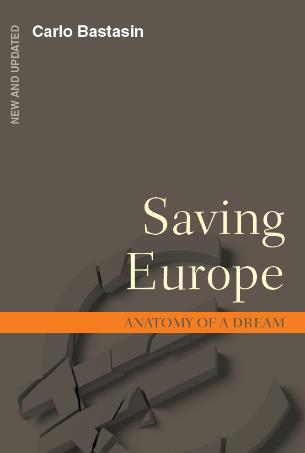
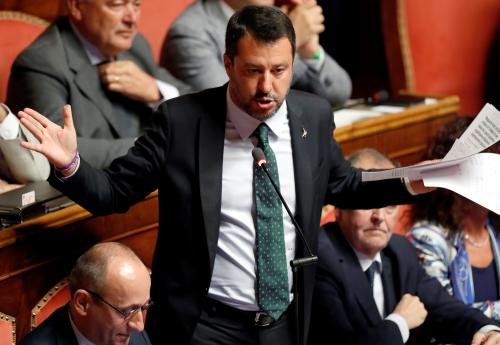
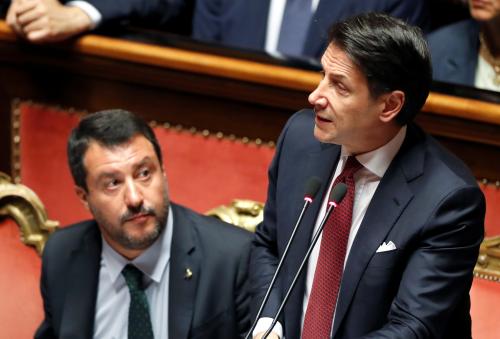

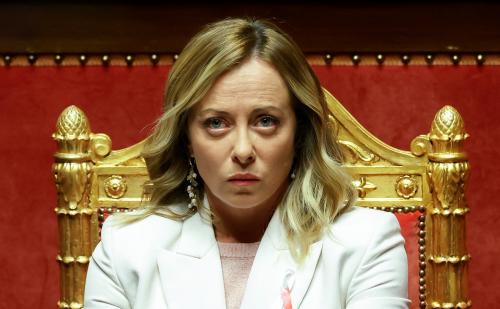

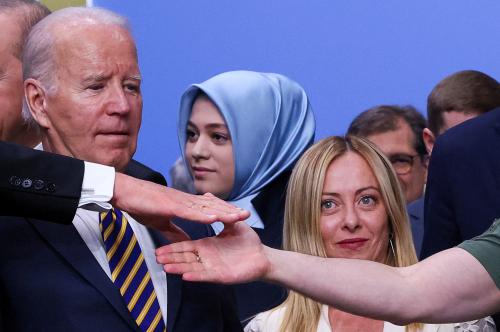
Commentary
Italy’s political turmoil shows that parliaments can confront populists
September 9, 2019